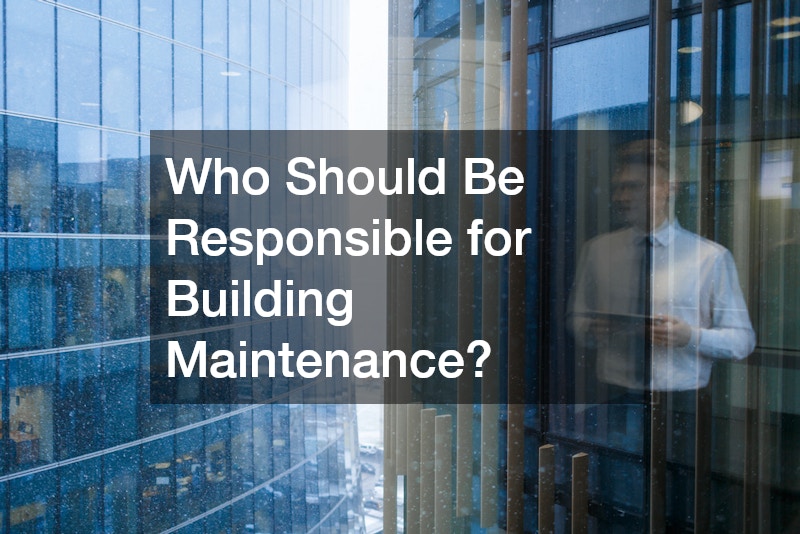In this article, we will explore the critical role that building maintenance and upkeep play in ensuring the safety, functionality, and longevity of structures. Proper maintenance not only preserves the physical integrity of a building but also enhances its value and reduces long-term costs.
Why is Regular Building Maintenance Essential?
Preserving Structural Integrity
Regular inspections and repairs prevent minor issues from becoming major structural problems. A proactive approach to maintenance ensures that the building’s core framework remains intact throughout its lifespan.
Buildings are exposed to environmental factors that can gradually erode their structure if not addressed. Routine upkeep helps in identifying potential points of failure and mitigates risks associated with structural degradation.
Preserving structural integrity extends the useful life of the building, providing long-term savings on potential reconstruction. Moreover, it fosters trust among occupants and stakeholders in the safety of the facility.
Ensuring Safety and Compliance
Adhering to regulations and safety standards is crucial to minimizing risks and liabilities. Regular maintenance checks help in preventing accidents that can lead to severe injuries or legal consequences.
Ensuring compliance with building codes and safety regulations protects the interests of both owners and occupants. It establishes a safety-first culture that prioritizes the well-being of everyone involved.
Safety and compliance are integral to maintaining the building’s reputation and operational continuity. Organizations often face financial penalties when compliance is overlooked, impacting overall profitability.
What Are the Most Common Building Maintenance Issues?
Water Damage and Leak Prevention
Identifying and addressing leaks early is key to preventing mold and structural damage. Water intrusion can rapidly escalate from a minor inconvenience to a costly repair situation if neglected.
Diligent maintenance of roofing, plumbing, and drainage systems is essential to prevent leaks. These are common areas where water infiltration can occur and where preventive actions are most needed.
Mold and mildew resulting from leaks pose health threats to occupants. Swiftly dealing with leaks not only protects the physical building but also the well-being of those who use it daily.
HVAC System Maintenance
Regular servicing of heating and cooling systems extends their lifespan and ensures efficiency. An optimally functioning HVAC system contributes to the overall comfort and energy efficiency of a building.
Maintenance of HVAC systems prevents unexpected breakdowns and costly emergency repairs. This not only saves money but also guarantees a reliable indoor climate for occupants year-round.
Inefficient HVAC systems can lead to higher energy bills and increased environmental impact. Regular checks and timely updates to the system can align with sustainability goals and reduce operational costs.
How Can Proper Upkeep Maximize Building Lifespan?
Proactive Maintenance Strategies
Implementing a planned maintenance schedule helps in early detection of potential issues. It allows property managers to allocate resources effectively and prevent disruptions to building operations.
Proactive strategies involve anticipating potential failures and addressing them before they manifest. This foresight reduces the likelihood of catastrophic failures and allocates maintenance efforts more efficiently.
Consistent attention to the building’s needs ensures that minor wear and tear do not compound into significant problems. A robust strategy underlines the commitment to maintaining the building’s utility and aesthetics over time.
Modernization and Sustainability
Incorporating sustainable practices can enhance building efficiency and extend its usability. Upgrading facilities with energy-efficient technologies reduces operational costs and environmental impact.
Modernization can improve building systems such as lighting, insulation, and water management. Such updates ensure that the building remains competitive and attractive in modern markets.
Integrating sustainability into maintenance is both a cost-saving measure and a responsibility towards environmental stewardship. Sustainable buildings often see higher occupancy rates, as they align with contemporary values of many tenants.
What Are the Cost Implications of Building Maintenance?
Cost Savings from Preventive Maintenance
Investing in regular upkeep can significantly reduce unexpected repair costs. Preventive maintenance helps in identifying issues before they turn into expensive and disruptive repairs.
The cost of preventive maintenance is generally lower than the expense of correcting issues after they become severe. It is a prudent financial strategy for preserving the value and functionality of the property.
Fact: Buildings with regular maintenance experience fewer emergencies and incur lower costs in the long run. The savings from well-managed maintenance can be redirected into other beneficial investments for the property.
Budgeting for Maintenance
Establishing a dedicated maintenance budget aligns financial planning with facility needs. It is essential for ensuring that funds are available for both anticipated and unexpected maintenance costs.
A well-planned budget helps avoid financial strains during large maintenance projects. It also provides a clear view of financial commitments and potential savings over time.
Engaging stakeholders in budgeting discussions ensures transparency and prioritizes maintenance as a core operational need. This aligns everyone towards the common goal of maintaining a safe and efficient property.
Who Should Be Responsible for Building Maintenance?
Role of Property Managers
Property managers oversee maintenance operations and ensure adherence to service contracts. They play a crucial role in scheduling inspections, coordinating repairs, and managing maintenance personnel.
Effective property management is key to maintaining a safe and functional environment. It involves balancing cost-efficiency with the quality of maintenance, ensuring the best outcomes for the property owner.
The expertise of property managers brings a professional approach to maintenance challenges. They are equipped to handle the complexities of maintaining different building systems and navigating regulatory requirements.
Engaging Professional Maintenance Services
Hiring skilled professionals can enhance maintenance quality and efficiency. Professional services bring specialized knowledge and experience that can extend the lifespan of building components.
Engaged professionals are adept at using advanced tools and techniques to extend the building’s utility. Their proactive maintenance approach helps in foreseeing potential challenges before they arise.
Collaborating with experienced maintenance services instills confidence in the reliability of building systems. This partnership ensures that maintenance activities are carried out to the highest standards possible.
.



